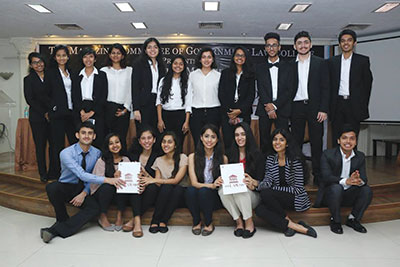
Currently, Mumbai University has 55 affiliated law colleges with 36,000 students enrolled in its three-year LLB and five-year bachelor of legal science and bachelor of law courses (BLS-LLB). In May this year, the university’s academic council approved a proposal to allow affiliated law colleges to conduct examinations for all but the final year of the three-year LLB course and five-year BLS-LLB programme. Moreover, on August 24, the university replaced its 100-mark central exam with a 60:40 evaluation pattern under which the university will restrict itself to assessing students’ theoretical knowledge (60 percent), leaving colleges to evaluate their practical skills and competence (40 percent). During an earlier hearing, the court had remarked on how the university was making a “mockery” of legal education.
Ironically, the proposal to conduct all but the final year law examinations at the college level came from college managements themselves. Repeated delays in results declaration, especially after the shift to online assessment in April 2017, forced law colleges to extend following year admission dates, throwing their academic calendars out of gear. Fed up with the university’s chronic delays in declaring exam results year-on-year, principals of all law colleges affiliated with MU mooted this idea at a meeting with the minister for higher and technical education, Vinod Tawde, on April 16. The fact that this year for the first time, the university declared its January-May 2018 semester results on time after delegating the assessment work to colleges, is believed to have inspired the proposition.
However, some academics are of the view that the proposal tantamounts to MU shirking its prime responsibility and side-stepping the basic issue of inadequate faculty to mark answer papers. “There are only 58 university approved faculty in the 55 law colleges affiliated with MU — a teacher-student ratio of 1:620. These law colleges rely heavily on guest lecturers and practising lawyers to conduct classes. But these add up to 296 professors who are mainly practising lawyers and don’t have the time or inclination to give adequate attention to correcting papers and assessing practical skills,” says Parthsarthi Saraf, a student of the G.J. Advani Law College, Mumbai and one of the petitioners protesting the university’s 60:40 assessment division proposal.
Likewise, the Student Law Council representing law students says the proposal will result in colleges liberally assessing their students to improve their institutional reputations but would lower the quality of the legal profession. The council suggests that the proposal requires greater debate and is the imprimatur of the Bar Council of India, which is chartered to maintain standards in the legal profession.
Under the University Grants Commission (UGC) rules, law students enrolled in three-year LLB and five-year BLS-LLB programmes are assigned ‘conferment of degree’ status after their second and fourth years respectively. Under the new scenario — of which the high court has articulated its displeasure — MU in effect will restrict itself to merely awarding formal degrees — ex facie excessive delegation of power.
On October 30, the Bombay high court stayed the university’s circular directing law colleges to implement the 60:40 marking system in the current academic year 2018-19 as well as for 2019-20. Quite rightly the learned judges of the court believe that in professional education, the issue of separation of teaching and examinations needs further and deeper debate.
Dipta Joshi (Mumbai)